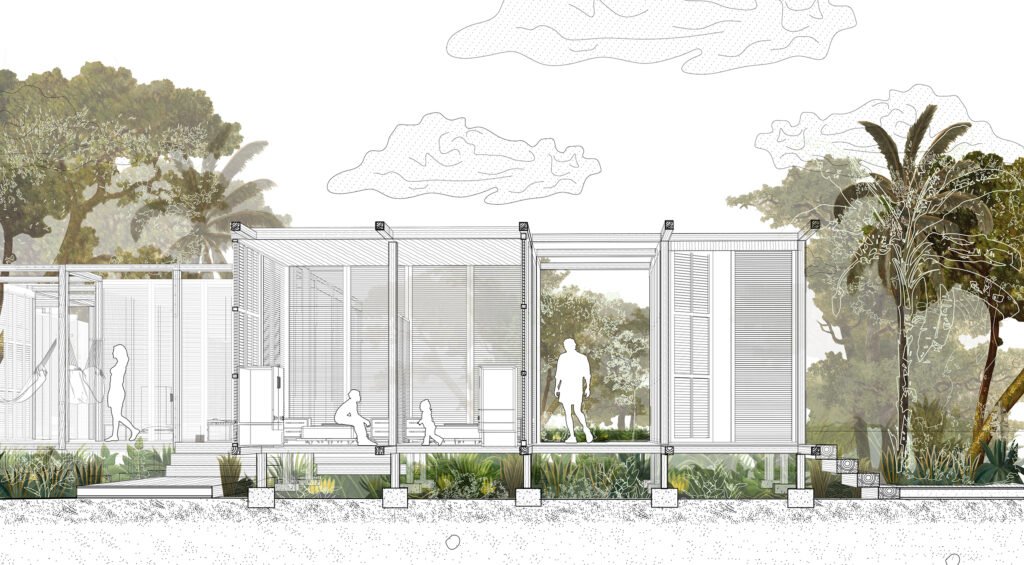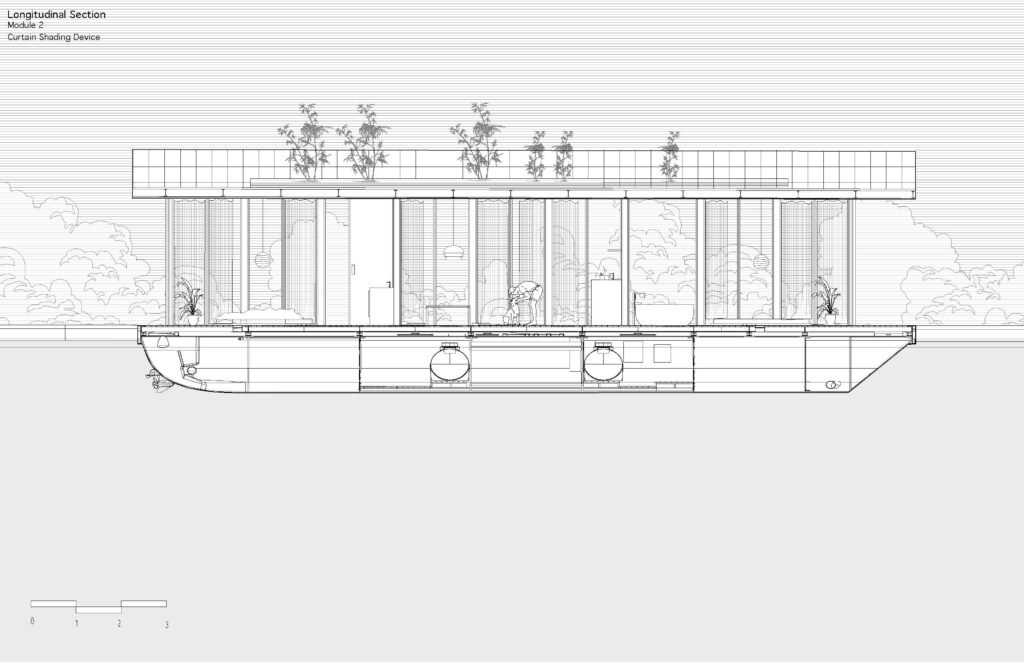OLAB
It is a non-profit organization capable of generating spaces for exchanging information, interaction, dialogue, and reflection on contemporary sociocultural thinking. OtiimaLab creates , through the development of joint activities of cooperation and co-production with other platforms, groups, collectives, companies, or research centers, a type of sociocultural reflection on the construction process of identities. It is a study center that aims to develop research activities, whether artistic, scientific, or technological development in the disciplinary areas of Architecture, Arts, Design, Construction, and Urbanism, supporting the development of academic research.
SUMMER DESIGN COMPETITION STUDIOS
SILENCE PODS
SUMMER 2024 Design Competition Studio
Noise or sound pollution encompasses disseminating disruptive sounds that significantly impede various facets of human activity. Extensive research underscores its detrimental impacts on health and behavior, correlating it with accelerated cognitive decline and orsening of mental health conditions. Particularly susceptible are environments conducive to work and study, where noise pollution can severely compromise productivity and creative output. The outdoors, being inherently vulnerable, presents a formidable challenge in mitigating or escaping such disturbances.
In the realm of scholarly inquiry, noise pollution researchers have shed light on its multifaceted repercussions. In her seminal work on environmental acoustics, Dr. Jane Smith asserts, “The pervasive nature of noise pollution infiltrates every aspect of contemporary life, posing a formidable threat to well-being across diverse settings.” Likewise, Dr. Michael Johnson, an authority on urban soundscapes, posits, “The deleterious effects of noise pollution extend beyond mere annoyance, encompassing profound implications for public health and societal harmony.”
Within the context of this Summer Design competition, aspiring architects are tasked with conceptualizing and crafting Silence Pods tailored to varied environments and user needs. Critical criteria for evaluation include incorporating cutting-edge technology, sustainable construction practices, ecological sensitivity, adaptability to climatic exigencies, optimal spatial organization, and harmonization with contextual aesthetics.
EMERGENCY SHELTER
SUMMER 2023 Design Competition Studio

Since the opening years of the 21st century, natural disasters, war, political conflicts, and economic disparities have disrupted communities across the globe.
The United Nations Refugee Agency reported that by the close of 2021, “89.3 million people were forcibly displaced” due to “persecution, conflict, violence, human rights violations or events seriously disturbing public order” (UNHCR)
While communities facing these perils in isolated areas or without access to resources find they are unable to meet basic needs, even wealthy communities struggle to provide resources to their affected populations. In addition to the need to respond to high-impact events, the toll of daily health and economic disparities is evident as major cities experience growing numbers of their population who are unhoused and in need of primary care.Serving as a bridge between these traumatic circumstances and significant policy commitments to trans-formative solutions, this Summer Design Project Competition will propose models for communities to provide residents in need with an Emergency Deployable Shelter (EDS). The Design Project will engage in pre-planning to understand the community needs, challenges, and potential hazard events as a foundation for planning, designing, production, and storage of the EDS. Planning and design will address the development of an individual EDS and its position within a prototypical post-disaster settlement that embodies healthy urban planning principles.
FLOATING HOUSE
SUMMER 2022 Design Competition Studio

The 21st century has been shaped by decisions made centuries prior. Today, it is our responsibility to design for tomorrow, recognizing this century’s environmental changes will impact the future. Climate change poses numerous challenges to current conditions, including two fundamental questions for coastal and riverine communities: how will our cities cope with rising heat and sea levels? The cooling properties of water can mitigate heat if sea-level rise can be addressed. Given that these are two of the expected consequences of today’s ongoing environmental changes, floating architecture can contribute to greater livability in the imminent future. As a building system situated on waterbodies using a specific structural system, floating architecture can also ameliorate the increasing depletion of land development and reduce deforestation. The floating architecture draws on extensive knowledge based on principles of buoyancy and density to ensure stability. A leader in this work, GOFRIDAY has already developed successful floating house prototypes and for this Summer Studio, they are the sponsors and our north arrow to follow. In this proposal as an architectural design studio, students will have the opportunity to research approaches to floating architecture, an experimental source of theoretical and practical innovation for water livability.
When competition partnership is made between university and company, they become a space for co -the creation of the author/team and the client/jury with a common objective: to seek new solutions that demonstrate the versatility of the project/product and enhance its visibility and versatility.